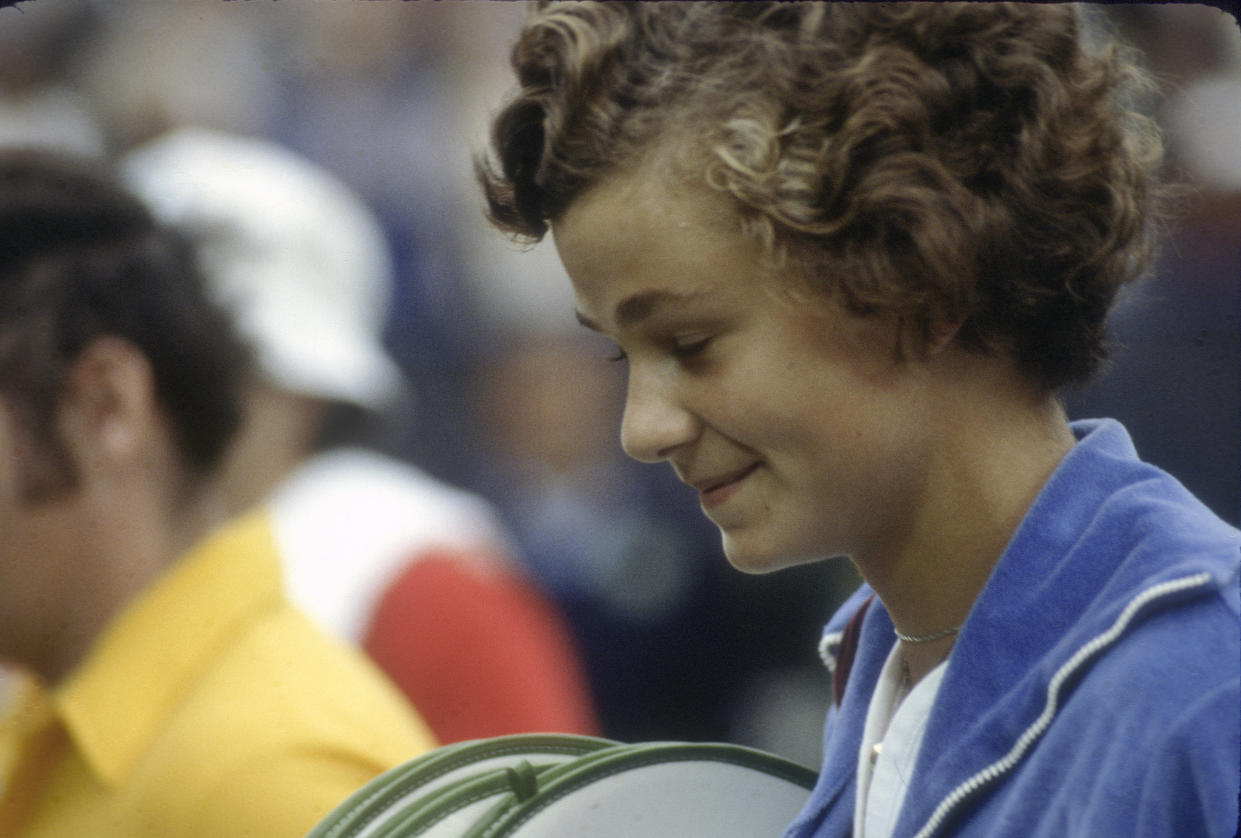Tennis Hall of Famer and ESPN analyst Pam Shriver opened up on Wednesday and revealed that she was in “an inappropriate and damaging relationship with my much older coach” that started when she was 17.
Shriver told ESPN’s Outside the Lines and wrote a story for The Telegraph detailing her relationship with former coach Don Candy.
This is not an easy story for me to tell, but it is time.
You can listen to my story on the @TennisPodcast – https://t.co/81m3Ryfwr4
You can read my story @TelegraphSport – https://t.co/ckvTF4SSQQpic.twitter.com/ZRHJMxPTjg
— Pam Shriver (@PHShriver) April 20, 2022
Shriver, 59, got her professional tennis start at 15 in 1978 — the same year she reached the US Open finals as an amateur. She started working with Candy, who served as her coach and chaperone. Their relationship started two years later, she said, and then became sexual when she was 20.
Candy, who was 33 years older than Shriver, died in 2020 at 91.
"It was during a time that was a really difficult time for me to have my first relationship," Shriver told ESPN. "It never should have been with my coach and … I've just realized that it's time to talk about my story and hopefully make it easier for some other people who've also had stories that are similar."
Shriver — who won 21 singles titles on the WTA tour and 21 Grand Slam doubles titles throughout her career — said she was never abused sexually by Candy. She did, though, say that she was emotionally abused and that her relationship with him became an “open secret.”
Shriver said she told her father about the relationship with Candy. It was something that, both while it was happening and after, that led to a lot of “shame and guilt.”
"I felt also a lot of anger, jealousy when his wife would come to tournaments. Um, so it was just basically, at times really miserable,” she told ESPN.
"And because I was, you know, living the life of trying to be the best tennis player I could be, I really didn't understand how difficult the secret and the juggling was. And so I just kept it to myself.”
She said her feelings toward Candy, even to this day, are conflicting.
"Yes, he and I became involved in a long and inappropriate affair. Yes, he was cheating on his wife. But there was a lot about him that was honest and authentic. And I loved him,” she wrote in The Telegraph. “Even so, he was the grown-up here. He should have been the trustworthy adult. In a different world, he would have found a way to keep things professional. Only after therapy did I start to feel a little less responsible. Now, at last, I've come to realize that what happened is on him."
Why come forward now?
Shriver was asked why she decided to come forward about her relationship with Candy several decades after it happened.
One big reason, she wrote, is because “this still goes on — a lot.” She said she’s “witnessed dozens of instances” throughout her playing and commentating career in the sport, and that it worries her.
It was also something she said she finally came to terms with during the COVID-19 pandemic and following the death of her mother, who she never told.
"Most of the time in my life, I just kept moving forward and I never allow myself enough time to kind of think about what had happened then and really how damaging the relationship was, how it hurt my tennis, my performance, how it hurt my ability to form healthy relationships moving forward in my life,” she told ESPN.
"It really did take a combination of things. The pause of the pandemic, realizing that my kids were of similar age I was when the relationship started. It also took, I think, some reflection when my, my mom died and last August. She died, never knowing that this happened. She always thought that I was being chaperoned by a safe person.
"And so, I just feel like it's time for me. I feel like it's important for my healing. And it's important that I can maybe feel that me coming forward and talking about my story in detail, might just help a few young players. Maybe it'll help coaches to understand that they need to not cross that boundary. So I feel like, for a lot of reasons, it's the right time."
Source: Read Full Article





